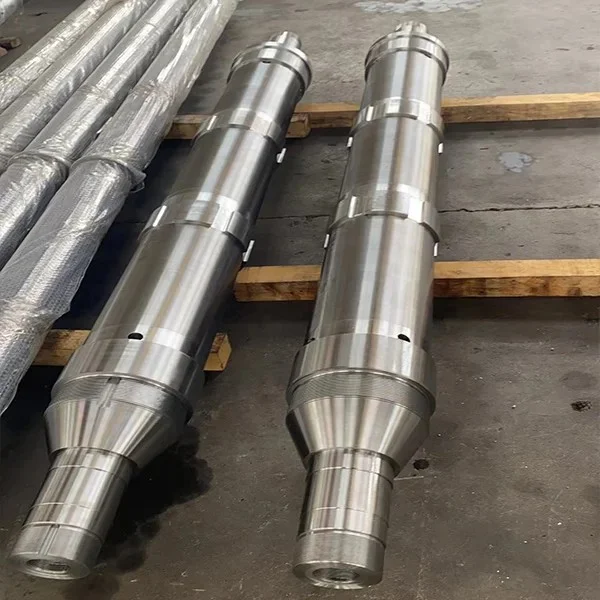When it comes to mechanical systems, the shaft is a critical component that plays a vital role in transmitting motion, torque, and bending moments. At Sawei, we understand the importance of selecting the right shaft for your specific application. With various types of shafts available, including straight shafts, roller shafts, motor shafts, and gear shafts, making an informed choice can significantly impact the performance and longevity of your machinery. Here’s a guide to help you choose the right mechanical shaft for your needs.

1. Identify Your Application Requirements
The first step in selecting the right mechanical shaft is to clearly define your application requirements. Consider factors such as:
- Load Capacity: Determine the amount of torque and bending moments the shaft will need to handle.
- Speed: Assess the rotational speed at which the shaft will operate.
- Environmental Conditions: Consider factors like temperature, humidity, and exposure to chemicals that may affect material selection.
Understanding these parameters will guide you toward the most suitable shaft type.
2. Understand Shaft Types
Familiarize yourself with the different types of mechanical shafts and their specific applications:
- Straight Shafts: Commonly used in various machinery to transmit torque and bear bending moments.
- Crankshafts: Primarily found in internal combustion engines, converting linear motion into rotational motion.
- Flexible Shafts: Designed to transmit power in applications where misalignment may occur.
- Hollow Shafts: Used when weight reduction is essential without compromising strength.
- Transmission Shafts: Specifically designed to transmit torque without bearing significant bending moments.
Selecting the appropriate type based on your application is crucial.
3. Material Selection
The material of the shaft significantly affects its performance and durability. Common materials include:
- Carbon Steel: Widely used for its strength and cost-effectiveness; grades like 45 steel are commonly used.
- Alloy Steel: Offers enhanced mechanical properties and is suitable for high-stress applications.
- Ductile Iron: Ideal for complex shapes due to its excellent casting properties.
Consider factors such as strength, rigidity, wear resistance, and manufacturing processes when selecting materials.
4. Consider Shaft Design
The structural design of the shaft is critical for its performance. Key design considerations include:
- Diameter and Length: Ensure that the dimensions are appropriate for your application’s load requirements.
- Keyways and Splines: Determine if additional features are needed for connecting other components securely.
- Surface Finish: A smooth finish can reduce friction and wear, extending the life of both the shaft and associated components.
5. Evaluate Manufacturing Processes
Different manufacturing processes can affect the quality and properties of the shaft:
- Forging: Produces strong shafts with superior mechanical properties due to refined grain structure.
- Machining: Allows for precise dimensions but may not be suitable for large-scale production.
- Casting: Useful for complex shapes but may have limitations in terms of strength compared to forged parts.
Choosing a suitable manufacturing method based on your design requirements is essential.
6. Assess Cost vs. Performance
While it's important to find a cost-effective solution, prioritize performance over price. A higher initial investment in quality materials or manufacturing processes can lead to improved efficiency and reduced maintenance costs in the long run.
7. Consult with Experts
If you’re unsure about which mechanical shaft to choose, don’t hesitate to consult with industry experts or suppliers like Sawei. They can provide valuable insights based on their experience and knowledge of market trends.
Conclusion
Choosing the right mechanical shaft for your application involves careful consideration of various factors, including application requirements, shaft types, material selection, design considerations, manufacturing processes, cost versus performance, and expert consultation. At Sawei, we are committed to providing high-quality mechanical components tailored to meet your specific needs. If you have any questions or need assistance selecting the right shaft for your project, feel free to reach out!


